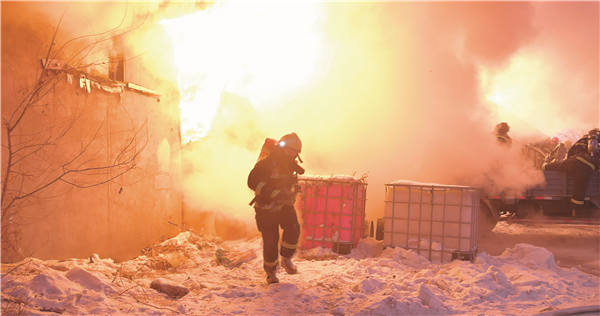

A six-part documentary follows firefighters in two cities as they undertake emergency response, Xu Fan reports.
Many people view a firefighter's job as dangerous-wrapped in a thick protective suit, rushing into a burning building to rescue the trapped. Despite that being a critical part of their work, firefighters have a more diverse daily schedule.
Call 119, a six-part documentary that has run on the streaming site Tencent Video since Aug 11, follows two teams of firefighters, respectively in Chongqing, Southwest China, and Harbin, Northeast China's Heilongjiang province, over nearly a year. With the support of China Fire and Rescue Department of the Ministry of Emergency Management, the film crew stayed with the teams for two months and shot some 12,000 hours of footage.
According to the producers, the two cities were chosen for their distinctive "personalities".
Chongqing has around 36,000 high-rise buildings, one of the most in China, which makes evacuation and fire control a more challenging task. Harbin, where the shooting was conducted between December and May, is bitterly cold in winter, with the average temperature falling to below minus 30 C at night.
The documentary also captures some of the lesser-known aspects of firefighters' work, from rescuing a lost kitten shivering on the ledge of a 10th-floor window to using a pair of scissors to get a ring off someone's swollen finger.
Wu Zijuan, the chief director, says the camera crew got used to falling asleep while still wearing their outfit in order to quickly follow firefighters when they received emergency calls.
China's emergency management rules say the response time for a firefighting unit should be within 45 seconds in the daytime and not exceed 1 minute at night, according to Li Baite, a veteran firefighter from Chongqing.
With a firefighting career becoming more professionalized in recent years, a firefighter's routine has expanded to undergo intense training, such as practicing slicing light bulbs to acquire the deft skills needed to cut glass windows more accurately, Li says.